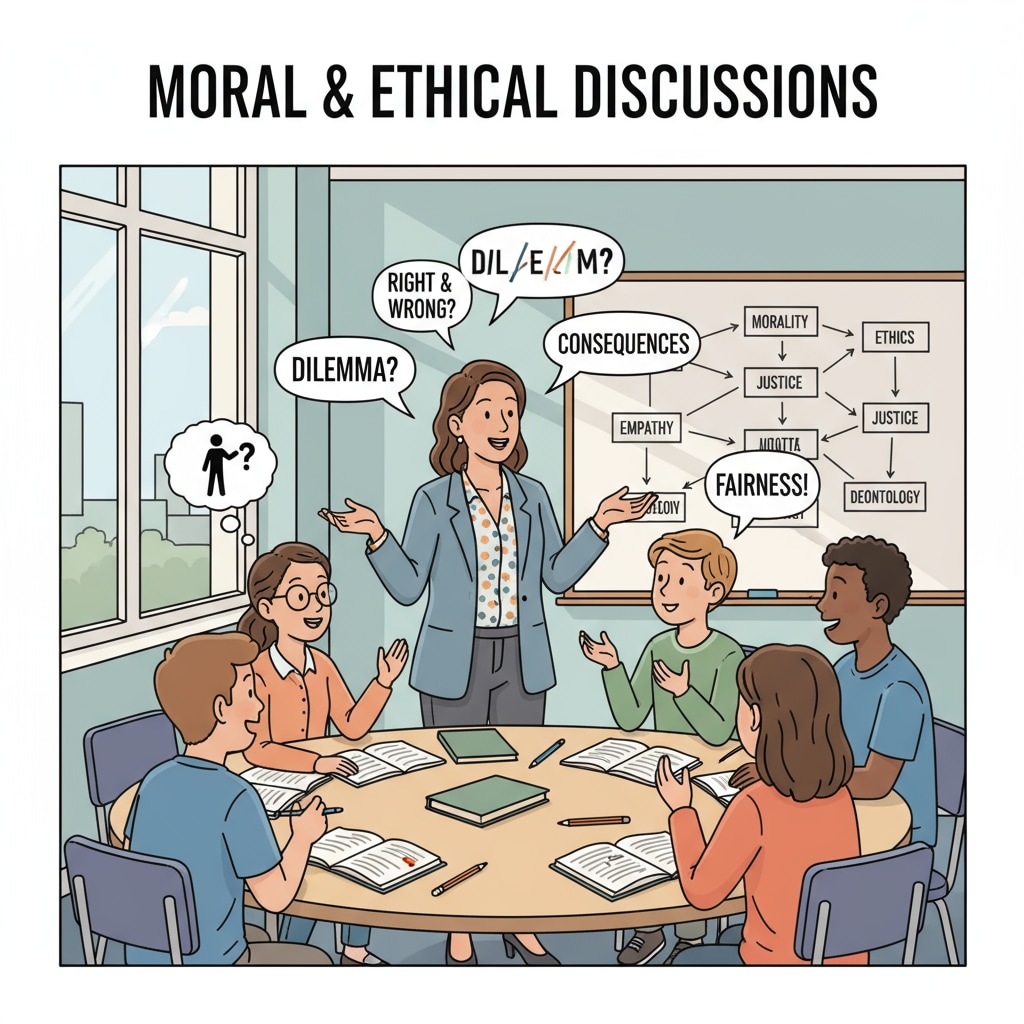Moral and ethical education, compulsory courses, and civic education are crucial aspects in shaping the character and values of students. In today’s complex and diverse society, the idea of establishing compulsory moral and ethical courses in the K12 education system has gained significant attention. This initiative holds great promise in cultivating responsible and ethical citizens for the future.

The Need for Compulsory Moral and Ethical Courses
In modern society, the need for moral and ethical education is more pressing than ever. Young people are constantly exposed to a vast amount of information and diverse values through various media platforms. A compulsory moral and ethical course can provide a structured framework for students to develop a strong moral compass. For example, it can help them understand concepts like honesty, respect, and responsibility. According to Britannica, education should not only focus on academic knowledge but also on the moral and ethical development of individuals.

Feasible Paths for Implementation
Implementing compulsory moral and ethical courses requires careful planning. One feasible approach is to integrate these courses into the existing curriculum. For instance, schools can incorporate moral and ethical discussions into subjects like social studies or language arts. Teachers can use real-life examples and case studies to make the learning more engaging. Another option is to develop a dedicated curriculum with well-defined learning objectives and assessment methods. As stated on Wikipedia, a well-designed curriculum is the foundation for effective education.
However, there are several challenges associated with this initiative. One major hurdle is the diversity of values among different communities and families. What one group considers morally acceptable may not be the same for another. Therefore, it is essential to find a way to balance these diverse values while establishing a common set of ethical principles. Additionally, ensuring that teachers are adequately trained to teach moral and ethical courses is crucial. Without proper training, teachers may struggle to convey these complex concepts effectively.
In conclusion, the establishment of compulsory moral and ethical courses in the K12 education system is a worthy endeavor. It presents a valuable opportunity to shape future citizens with strong moral and ethical values. However, to overcome the challenges, it is necessary to engage in in-depth discussions, develop inclusive curricula, and provide comprehensive teacher training. By doing so, we can create an educational environment that nurtures not only academically proficient students but also morally responsible individuals.
Readability guidance: The article uses short paragraphs and lists to summarize key points. Each H2 section provides a list of relevant ideas. The proportion of passive voice and long sentences is controlled, and transition words are added throughout the text for better flow.


